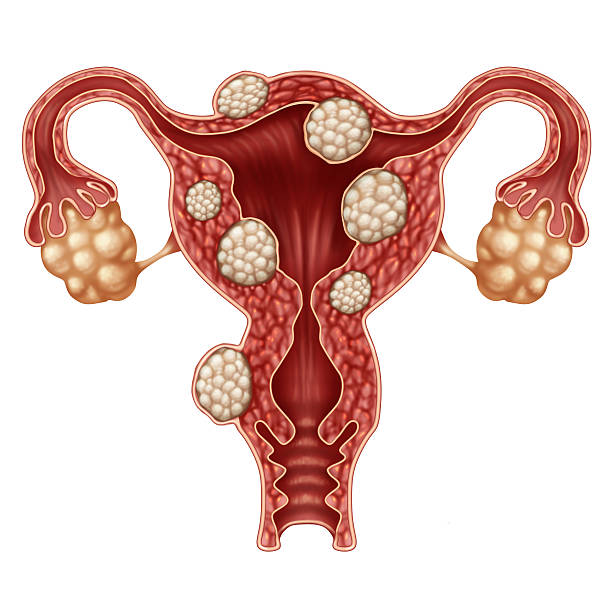At Concept Fertility, our mission is to empower women with knowledge about their reproductive health. As we observe Fibroids Awareness Month, we aim to shed light on a common but often misunderstood condition: fibroids. These non-cancerous growths can significantly impact a woman’s health and fertility, and understanding them is the first step towards effective management and treatment.
What Are Fibroids?
Fibroids, also known as uterine leiomyomas, are benign tumors that develop in the muscle tissue of the uterus. They vary in size, number, and location, and are categorized based on their position within the uterus:
- Intramural fibroids: Located within the muscular wall of the uterus.
- Submucosal fibroids: Protruding into the uterine cavity.
- Subserosal fibroids: Extending outside the uterine wall.
- Pedunculated fibroids: Attached to the uterus by a thin stalk.
Symptoms and Health Impact
Fibroids can cause a range of symptoms, including:
- Heavy menstrual bleeding
- Prolonged periods
- Pelvic pain and pressure
- Frequent urination
- Constipation
- Back and leg pain
For some women, fibroids are asymptomatic and discovered incidentally during a routine pelvic exam or ultrasound. However, when symptoms are present, they can significantly affect a woman’s quality of life, leading to anaemia, chronic pain, and emotional distress.
Fibroids and Fertility
The relationship between fibroids and fertility is complex and depends on various factors, such as the size, number, and location of the fibroids. Here’s how fibroids can impact fertility:
- Distorted Uterine Cavity: Submucosal fibroids, in particular, can distort the uterine cavity, making it difficult for an embryo to implant and grow. This can lead to recurrent miscarriages and difficulty in maintaining a pregnancy.
- Blocked Fallopian Tubes: Large fibroids can block the fallopian tubes, preventing sperm from reaching the egg or hindering the fertilized egg from traveling to the uterus.
- Impaired Blood Flow: Fibroids can compromise blood flow to the uterine lining, affecting embryo implantation and growth.
- Hormonal Imbalances: Fibroids can cause hormonal imbalances that may interfere with ovulation and the menstrual cycle, complicating efforts to conceive.
Fertility Preservation and Assisted Reproductive Technologies (ART)
For women with fibroids who wish to conceive, fertility preservation and ART can be viable options:
- Egg Freezing: Allows women to preserve their eggs before undergoing fibroid treatment.
- In Vitro Fertilization (IVF): IVF can bypass certain fibroid-related fertility issues.
Fibroids are a common condition with significant implications for women’s health and fertility. At Concept Fertility, we are committed to providing personalized care and treatment options to help women navigate this condition. During Fibroids Awareness Month, we encourage women to seek regular gynaecological check-ups, stay informed about their reproductive health, and consult with fertility specialists if they have concerns about fibroids and fertility.
By understanding fibroids and their impact, we can better manage their symptoms, improve fertility outcomes, and enhance overall well-being. If you have any questions or need further information, our team at Concept Fertility is here to support you every step of the way.

